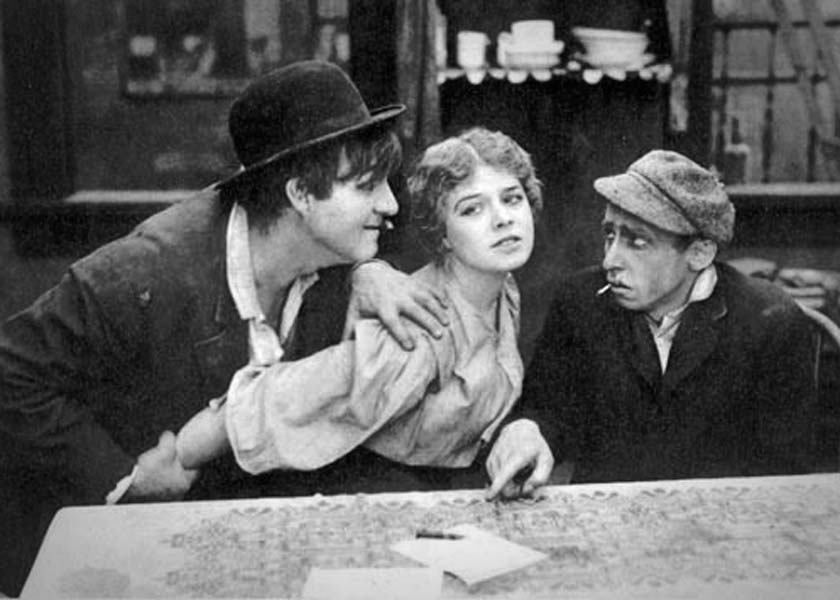Synopsis
Mary Denby (Ridgely) lives in poverty with her husband Steve Denby (Carpenter), a drunkard who spends most of their money on his vice. Unable to pay the rent, Mary takes a job as a seamstress at the home of the wealthy Mrs. Hilary (Chapman), who notices Mary's innate refinement. Mrs. Hilary invites Roger Manning (Reid), a young millionaire, to a dinner party to persuade Manning to agree to a business deal with her husband. Mrs. Hilary then persuades Mary to be Roger's date at the party. Clothes, jewels, and feathers transform Mary into an elegant young woman, and Roger is attracted to her. Still pursuing Roger's agreement to the deal, Mrs. Hilary persuades Mary to stay for the weekend. By the end of the weekend, Roger has proposed to Mary, who declines but will not explain why.
Steve breaks into the wealthy Hilary's home intending to rob it, where he discovers Mary asleep in a fine bedroom. He accuses her of unfaithfulness. Roger corners Steve, who asserts that he is visiting his wife. Roger, after allowing Steve to escape, gets Mary to confess the truth to him.
Steve decides to blackmail Roger, sending him a note — supposedly from Mary — asking for his help. Roger comes to the tenement, and Mary pleads with him to leave. He refuses, then gets into a fight with Steve. The situation escalates when the police arrive, and Steve shoots a cop before being shot dead himself. As Roger tells his side of the story to the police, Steve's corpse is carried into the bedroom. Mary, agonized, stands motionless outside the closed bedroom door. The film ends with a distressed Roger bending down weakly beside her.
Discussion
From this rather slight plot, director Cecil B. DeMille delivers a well-paced film focused on intimate human drama and personal relationships. The direction emphasizes natural facial and body movements, and the movements and gestures of the actors are subdued and restrained (an interesting comparison to the generally more exaggerated acting in D.W. Griffith's films of this same time period).
Wallace Reid, who also had a small role in Griffith's The Birth of a Nation in 1915, is handsome and personable as the wealthy Roger Manning. Cleo Ridgely, a little known actress, impresses as the unhappy wife, Mary. She effectively communicates Mary's sad resignation, her yearning for nicer things, and her anguish at the sudden, violent death of her husband. Ridgely had leading roles during the 1910s, but appeared in only a few films after her marriage to director James W. Horne in 1916.
Scenes showing Mary dressing for the dinner party present an interesting showing of the fashions of 1915. They also show the beginnings of DeMille's emphasis on the fashions and costumes of his leading ladies, important elements of his films with Gloria Swanson in the 1920s.
Further Reading

